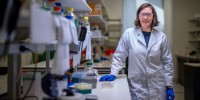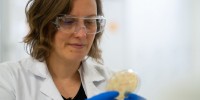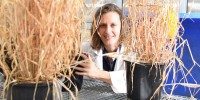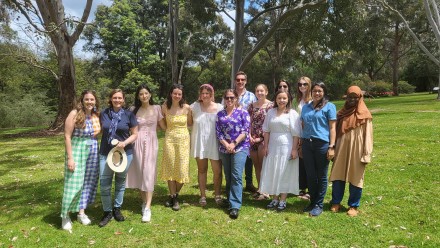Byrt Group – Engineering plant membrane proteins and solute transport to increase yield security
Our crop yields are limited by osmotic stresses, which often occur as a result of drought and salinity. There is potential for us to be able to improve crop osmotic stress tolerance by manipulating the function of aquaporins. Aquaporins are membrane intrinsic proteins, which are renowned for functioning as water channels. Our team discovered that a subset of plant aquaporins can switch between functioning as water channels and functioning as channels that are permeable to salt ions. We have identified aquaporin post-translational modifications that function like “molecular switches”, regulating the ion and water channel activity of dual ion:water aquaporins. We are working on translating these discoveries into engineering strategies to increase crop tolerance to salinity and drought, and to advance water filtration technology.
Group Leader
Postdoctoral Fellows
Research Assistant
Honorary Senior Lecturer
Honours Student
PhD Students
Research Officers
Technical Assistants
Visiting PhD Student
| Project | Status |
|---|---|
| Engineering aquaporins | Current |
| Investigating transcriptional and postranslational regulation of aquaporins | Current |

Scientists use plants to seed solutions for recycling valuable metals and minerals

How to grow plants on the moon

ANU to support Aussie start-up in growing plants on the moon

Scientists to harvest valuable resources from wastewater

Seeing the light: Better plants, better future

Accelerating the water space-race

Caitlin Byrt

BSB PhD Exit Seminar: Characterising the regulatory effects of splice variants of transporters

PS Seminar Series- JOINT SEMINAR - Exploring a new pathway for crown root development

























